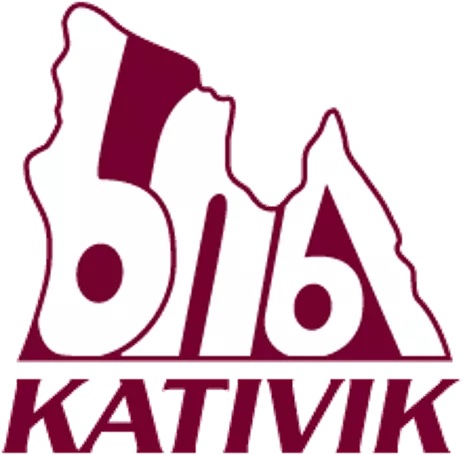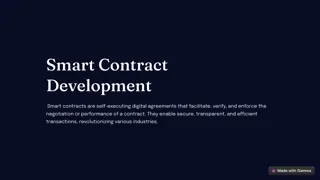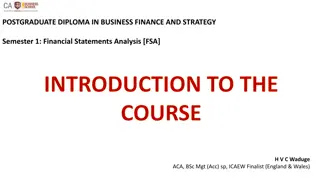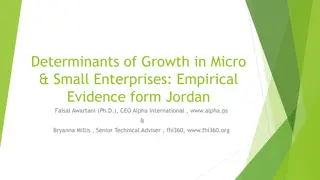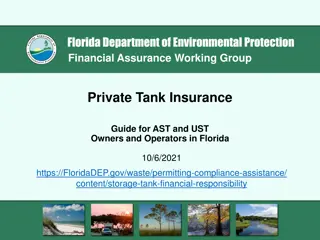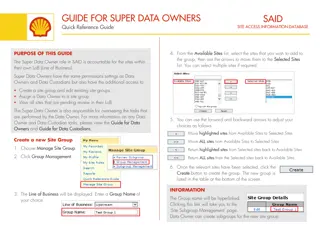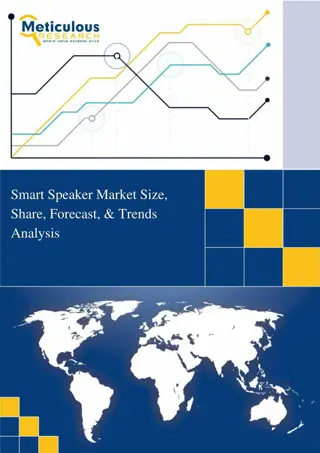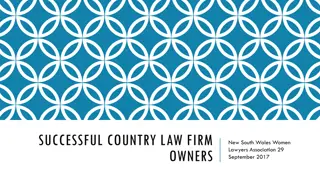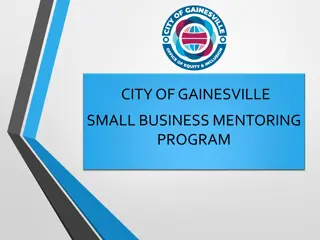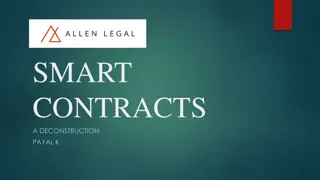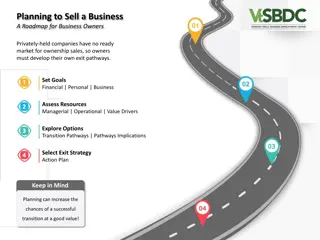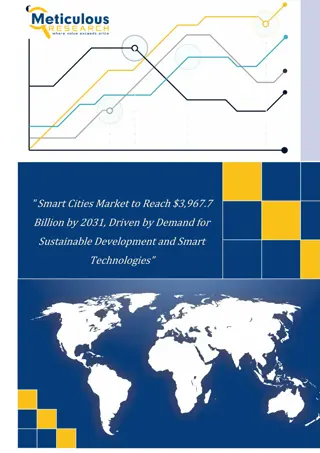Smart Financial Management for Business Owners
Learn the importance of paying yourself first as a business owner, understanding the financial needs of your business, and setting realistic financial goals. Explore the advantages of taking a salary, proper money management to avoid legal issues, and the significance of reinvesting profits into your business for long-term success.
Uploaded on Jul 19, 2024 | 0 Views
Download Presentation

Please find below an Image/Link to download the presentation.
The content on the website is provided AS IS for your information and personal use only. It may not be sold, licensed, or shared on other websites without obtaining consent from the author.If you encounter any issues during the download, it is possible that the publisher has removed the file from their server.
You are allowed to download the files provided on this website for personal or commercial use, subject to the condition that they are used lawfully. All files are the property of their respective owners.
The content on the website is provided AS IS for your information and personal use only. It may not be sold, licensed, or shared on other websites without obtaining consent from the author.
E N D
Presentation Transcript
Entrepreneur Entrepreneur Local Learning Centers Local Learning Centers
SEMINAR 23: PAY YOURSELF FIRST Let s state the obvious: Even business owners need to eat. You likely started your business so you could pursue a venture that you love while (eventually) making money doing it. In this Seminar, we will address the following questions: How can I make my business project improve my financial security? Aren t we in business to make money? How much should I pay myself?
Its All In the Numbers Many business owners struggle over whether or not to pay themselves first before covering the business s other operating expenses and payroll. This was explored in Seminar 15: Whom do I Need to Pay? Additionally, it helps to keep the financial obligations of your company in mind. To answer that question, take a long hard look at your numbers. Revenue and profits are not the same things. You have loans, utilities, vendors and suppliers, employee salaries, tax obligations, and other bills to pay that cut into your business revenue. Don t just look at the current numbers; future expenditures such as estimated taxes may have to be paid. Look at accounts receivable to see how much money will be coming in.
Its All In the Numbers Cont d. There are many advantages with choosing to pay yourself a salary: Receive legally recognizable personal income. It s easier to save for retirement through the involuntary Canada Pension Plan (CPP) and Registered Retirement Savings Plan (RRSP) contributions. It s easier to apply for bank loans and mortgages because you have a record of consistent income.
Paying Yourself a Salary When your business starts making profits, it s tempting to take a little here and there for personal use. Please don t do this! It is important to understand that if your business is a registered corporation, it is illegal for you to use corporate money for personal expenses. Even if you re a sole proprietor, it's a bad idea when the revenue authorities (revenue Qu bec and Revenue Canada) can t differentiate your business income from personal income. Of course, what you do with your paycheck is entirely up to you. Once again, at all times, keep business and personal finances separate to reduce your chances of making a costly mistake. Overall, setting financial goals and recognizing your limits is very important buying a brand new car with new funds might be tempting, but could impede your business. Continued
What Should You Pay Yourself? Cont d As a small business owner, it s essential to focus more on reinvesting money into your own business than taking a larger salary, especially in the early years of your business. Pay yourself enough to cover your basic living expenses. It would help if you also considered personal expenses. Your rent or mortgage, food, credit cards, car loans, and living requirements must be totaled and assessed. Consider creating a personal balance sheet that lists the items you need to pay each month, and then add these expenses. Once you determine exactly how much money you need to live comfortably, make that amount your salary. Another option is to take a percentage of your net profit and increase that percentage as the revenues and profits grow.
Understand how Business Classification Impacts your Decision Many factors will influence your choice between a salary, withdrawal, or another payment method such as dividends, but your business classification is the biggest one. Why does this matter? - Because different business structures have different rules for the business owner s compensation. There are also various tax implications to consider. - Although the decision for you comes down to your personal needs, goals for retirement, and your situation, you should have an objective understanding of the advantages and disadvantages of each payment method. Continued
The Payment Methods Sole Proprietor Partners With this designation, you can pay yourself a wage or salary, which is considered your personal income in the Quebec/Canadian government s eyes. A sole proprietor s business income and personal income are considered as one for tax purposes. Partners in a business can also pay themselves wages or salaries, in which the income must be accounted for when filing income tax returns. Once again, in this case, their personal taxes and business taxes are one. They do not have the option to pay themselves dividends. That being said, this will differ when it comes to incorporated businesses. As will be further explained in Seminar 24: Understanding Income Taxes, owners in a corporation will need to file their income tax returns and the corporate tax return for the business. The owner of a corporation will have the option to pay themselves dividends or a salary.
But What About Dividends? A dividend is paid with the after-tax dollars earned in your corporation. They can be paid out in cash, or by cheque. Avoid mandatory retirement contributions. Dividends can be a more flexible option, and you are free to choose how you save for retirement. Less payroll administration and chance for payroll penalties Fewer tax payments The payment process is simple; you don t need to register for payroll and remittance if you don t have other employees Continued
But What About Dividends, Cont d Dividends, unlike salaries, are not subject to the payment of Canada Pension Plan contributions, employment insurance contributions, and other provincial payroll taxes. These amounts can significantly impact how much is left in your pocket at the end of the day and must be considered. Nevertheless, the income you earn through a company and the money you receive as dividends are taxed at about the same rate. Before deciding, sit down with your tax adviser and run simulations to determine what works best for your case. But dividends are not considered a company expense and will not lower your company s overall taxable income.
TRUE OR FALSE As a self-employed worker, I am entitled to the government pension fund program. True False True False
Congratulations, you are correct! if you choose to pay yourself a salary, it s possible to save for retirement through involuntary Canada Pension Plan (CPP) and Registered Retirement Savings Plan (RRSP) contributions. Click here to continue. Click here to continue.
Sorry. Please try again. Click here to try again. Click here to try again.
TRUE OR FALSE As a self-employed business owner, I have to pay myself minimum wage. True False True False
Congratulations, you are correct! No, the minimum wage doesn t apply as it does for employees. Pay yourself enough to cover your basic living expenses for you and your family after calculating what those expenses come to. Click here to continue. Click here to continue.
Sorry. Please try again. Click here to try again. Click here to try again.
GLOSSARY Click on the word to go back to that slide. - Proprietor : A proprietor refers to an owner; someone who has legal and exclusive ownership of something. The proprietor of a business would therefore own that business. - Compensation : In business, compensation describes the cash rewards paid to employees in exchange for the services they provide. It may include base salary, wages, incentives and/or commission. Total compensation includes cash rewards as well as any other company benefits. An owner s compensation refers to what salary an owner gives themselves. - Dividend : A dividend is the distribution of a company's earnings to its shareholders and is determined by the company's board of directors. Dividends are often distributed quarterly and may be paid out as cash or in the form of reinvestment in additional stock. - Remittance : Remittance refers to a payment made from a business to a person or other business, with the person or other business located in the same or a different country. Broadly speaking, any payment of an invoice or a bill can be called a remittance.
The next Module will be: Understanding Income Taxes for Business Owners



